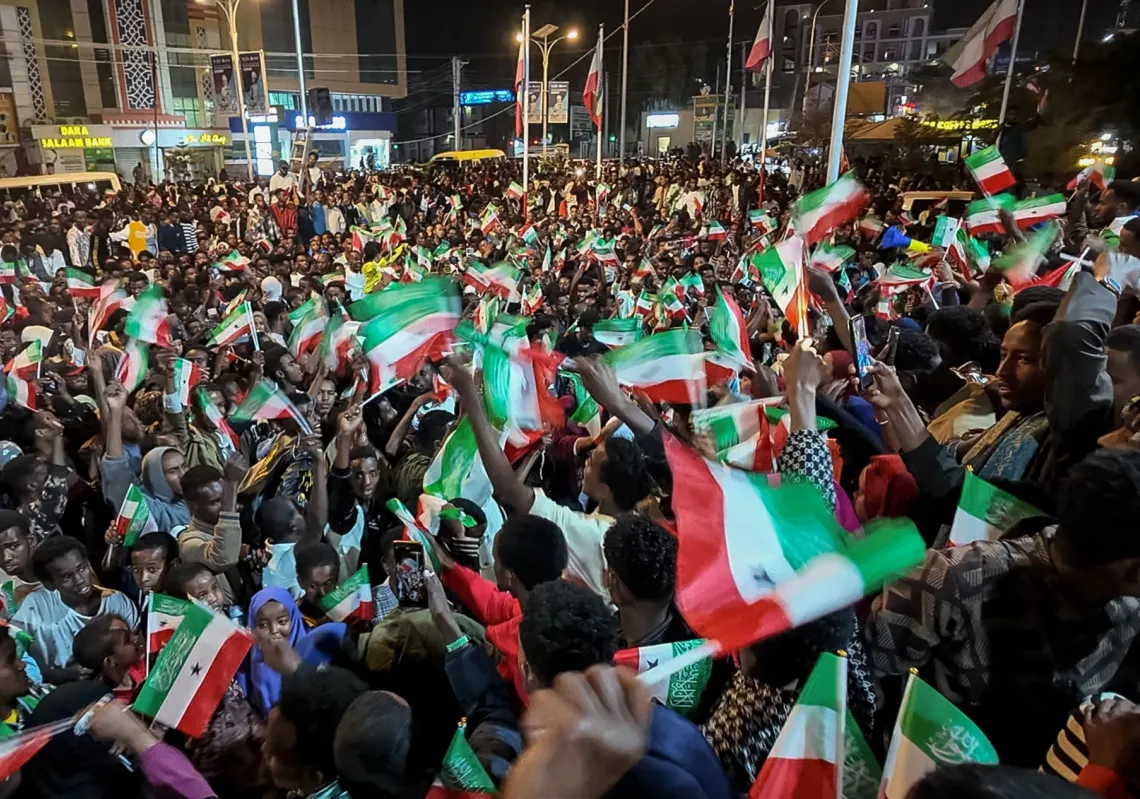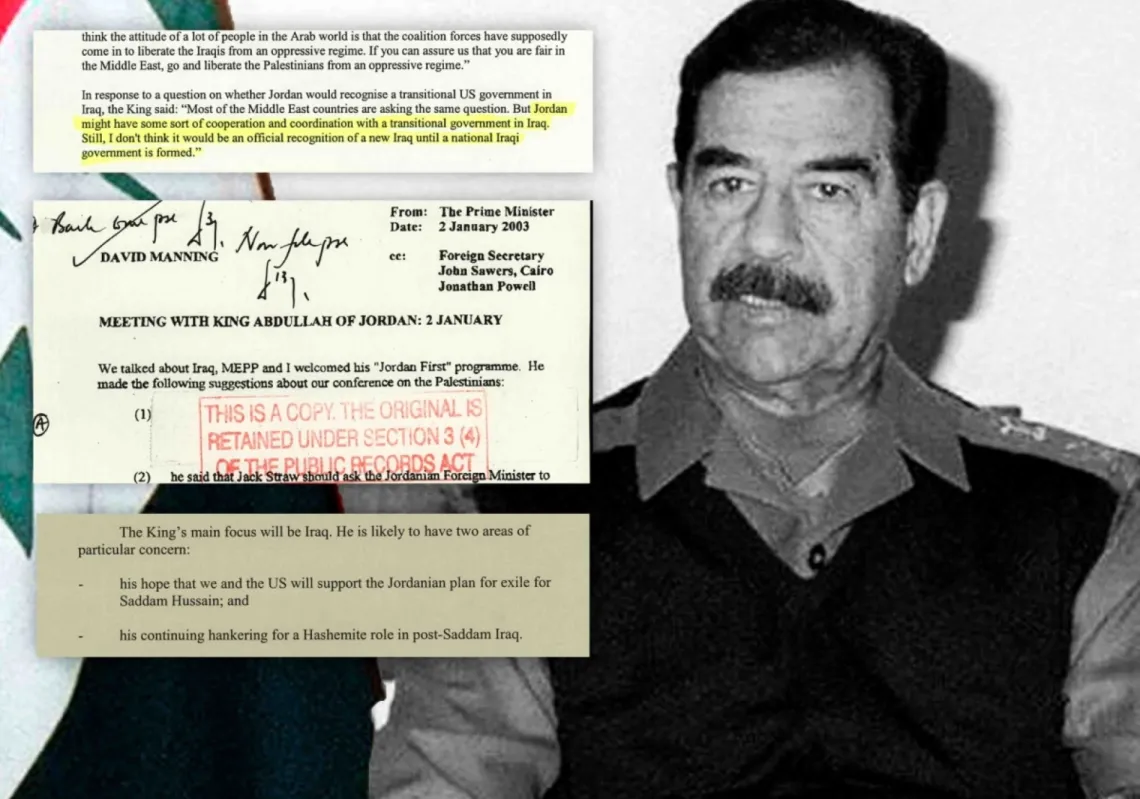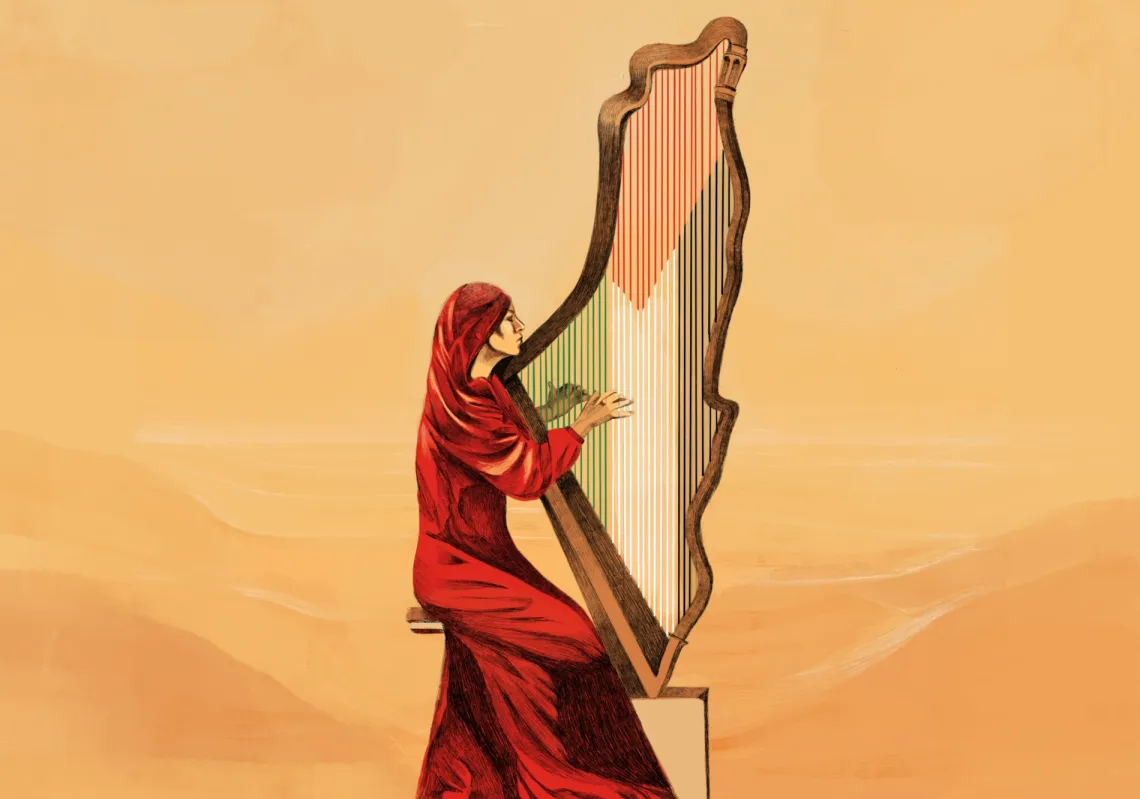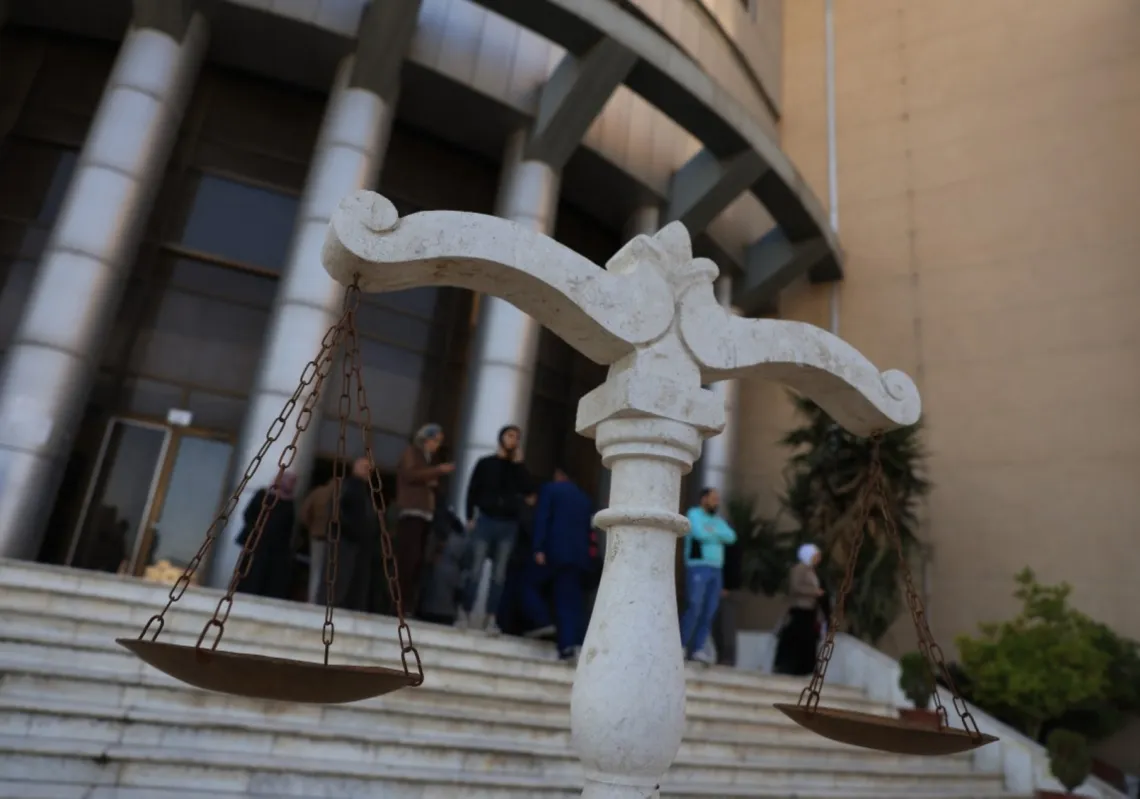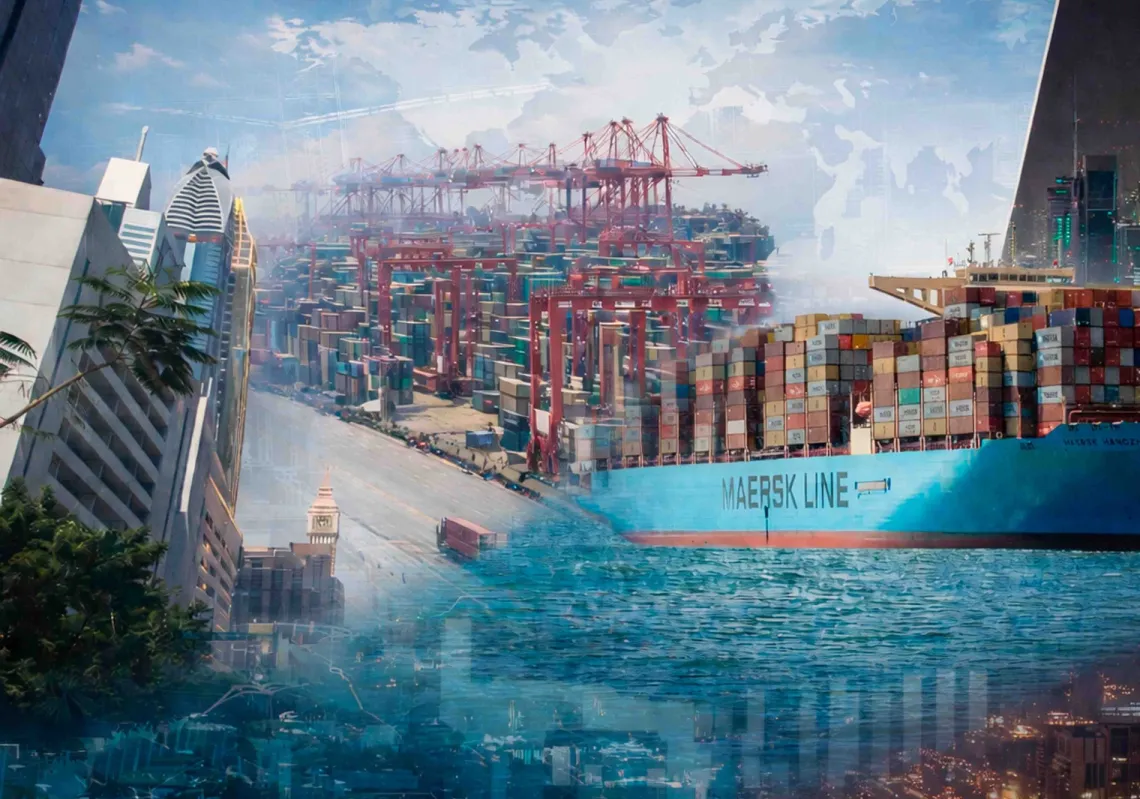Daniel Brumberg is acting director of the United States Institute of Peace’s Muslim World Initiative. Brumberg is also an associate professor at Georgetown university and a former senior associate at the Carnegie Endowment’s Democracy and Rule of Law Project. His research focuses on issues of democratization and political reform in the Middle East and wider Islamic world. With a grant from the MacArthur Foundation, he is currently working on a comparative study of power-sharing experiments in Algeria, Kuwait and Indonesia. A brief review of his most recent publication with the United States institute of Peace was published last week on The Majalla.
The Majalla: Do you believe there is an incompatibility between Islam and Democracy?
No, I don’t think there is an essential incompatibility between the two. It is the case that in any religious system—whether it is Judaism, Christianity or Islam—if a government is supposed to be based on religious precepts there is going to be a certain tension. I think democracy faces a broader problem that is not related to Islam. Religious ideas do not sit very well with democracy because religion, by its very nature, insists on very strict notions of moral life. If you look at studies that compare the Arab world to the Islamic world, you will see that where you have Muslim majority societies such as Indonesia and Senegal, in which democracy is done remarkably well, there is no evidence to suggest that it is the Islamic nature of Muslim majority societies that accounts for the presence or absence of democracy. There is some aspect of Arab politics and the Middle East that is to account for the phenomenon and not Islam itself.
Q: What processes do you think are necessary for political reform in the Middle East?
Political reform is not a new phenomenon in the Middle East, it did not begin with the Bush administration’s effort to promote it. In fact, there was a long legacy of state instigated political reform that goes back many decades. The primary example of that is Egypt in the 70’s and the political liberalization undertaken by the late President Amar Sadat. This is a good example of how regimes have used and invoked political reform not as a mechanism for actual democratization, but actually as a mechanism for holding on to power. So political reform as an instrument of state power is an old phenomenon in many Middle East states, not all, but many.
The question that I am interested in, and the question that the USIP report tackles on reform and security is the extent to which the state managed game of political change—in which the state defines the rules for political change— can go beyond by a game that is largely defined by the state and move towards a pattern of political reform that is much more substantive and has a basis in the society itself.
Q: Is political reform in the Middle East then primarily a bottom up or top down process?
It has to be both, in part because of the extent to which the boundaries of reform have been determined by states and regimes. Yet the US has based its hopes for democratic change in the Middle East largely on the hope that civil society groups and NGOs, through their own activism and their own actions, will be able to compel regimes to engage in political reform. That hope, what we call in our field a demand side approach— that demand is coming from civil society—has not been fulfilled.
There has to be a supply of democratic change from above. Therefore regimes have to see beyond the limits of reform that they have so far imposed, and that means a form of political liberalization that is wider. It also implies a genuine dialogue between regimes and opposition. Not the kind of dialogues you had between Egypt and elsewhere which are choreographed by the state. That’s typical of the region. Regimes are constantly engaging in dialogues but they are mostly really monologues, not dialogues with a goal of defining a political formula that moves beyond the boundaries of state managed political reform.
Q: How do you explain the ability of liberalized autocracies to endure despite predications of their inevitable downfall?
There are several reasons why they have succeeded so far. These regimes are not based solely on coercion and force. They provide goods and services, and they provide patronage, they have their own organized constituencies. They are able to buy political support to some extent by distributing all kinds of favours and goodies from the state. So they are not really coercive in that sense, they are patron states. But also these regimes extend the kind of protection to various groups in society. It’s a kind of protection in which the regime guarantees the safety of all groups, particularly those non-Islamist groups who are afraid of the outcome of a fully democratic game.
What the state does is essentially liberalize but not democratize. Therefore you can participate but not face the possibility of an election in which you or your allies will be politically isolated. Algeria is a great example: the regime extends protection to non-Islamist groups afraid of going back to the elections of 1988-89. So non-Islamist groups get protection from these regimes, but so do Islamist groups. That’s the name of the game, you have to protect everybody.
Even the Egyptian state, which does not allow the Ikhuwan-ul-Muslamin to establish their own political party, is very god at co-opting the Islamist message in the regime itself. It also has had a section of the NDP extend support to Islamists and to conservative Muslim leaders. States are good at creating their own constituencies and playing them off one against the other. It’s a divide and rule tactic, but these tactics are in part made possible because they are based on the fact that there are constituencies that prefer the status quo of state managed liberalization over the black hole of full democratization. That’s really what counts.
Q: For the case of Iran, what type of political struggle do you think would promote democracy?
Iran is in some sense a mirror image of the case of the Arab world. In the Arab world you have semi-secular regimes that extend protection to all kinds of groups but particularly non-Islamist groups—bureaucrats, the business community, secular intellectual. In Iran it’s a regime rule by Islamists, and they extend the protection of an autocratic state to their constituencies and the clergy, the true believers, the hardliners who want to maintain a close relationship between mosque and state. As a result those who control the Iranian state speak not simply for themselves, but also for a constituency of several million or more for whom any political liberalization is a threat because liberalization is seen as opening the door to the non-Islamist opposition. Iran is a highly divided society and it is ruled by an elite that sees any form of democratization as a slippery slope towards its own downfall. As a consequence there is no real incentive from those in power to make any concessions to the opposition. The problem is that the opposition doesn’t really have the power to bring down the regime. The most likely scenario will be one of conflict and stalemate for some time, maybe even years.
Q: How do you assess policies from the West towards Iran that encourage sanctions? Do they promote change, or do they do more harm than good?
Broad based sanctions, or what we call crippling sanctions, hurt the opposition more than the regime. As a result, broad based sanctions on say imported gas are probably very counterproductive in terms of any resolution of the conflict between the regime and the opposition, and in their ability to provide some measure of political liberalization. Target sanctions which are the coercive apparatus in the revolutionary guard make a lot more sense. These would probably be supported by the opposition. But broad based sanctions such as the kind that are supported by the US Congress are going to hurt the opposition much more than help them.
Q: What kind of target sanctions, in this case, would be most effective?
Economic and financial sanctions on the capacity of elements within the revolutionary guard to do business overseas, to import technology and capital, and to essentially service their own constituencies within the security apparatus would be most effective. Some of those targeted sanctions have been proposed by Congress and are getting more attention. Those are the kind of sanctions that the Obama administration is now supporting. In fact that the Obama administration has come out and said that the broader sanctions in Congress are wrong and counter-productive. There are a set of ideas in sanctions that can help more than they can hurt. Sanctions for the Congress are a way of making a statement in support of the opposition but it’s a statement that can do more harm than good.
Q: The US has made various efforts to promote democracy in the Middle East. Do you think any of these have efforts have had the long term benefits that the US was looking for?
Under the Bush administration there was both much continuity with previous administrations, and yet somewhat of a break. The break came in the form of the language of US support for democracy and the substance of our policies. Under the Bush administrations we began to speak to states much more clearly about the need for reform. At the same time we supported civil society groups. So this equation which I mentioned before—the demand side reform vs. supply side—was addressed by the Bush administration. The problem there was that there was a real hesitancy, once Islamist made advances in Egypt and Palestine, to support the pressure on regimes. The last two years of the Bush administration were spent reverting to the more traditional US policy to rely on civil society groups instead of pressuring regimes themselves. We are probably now back on that traditional policy.
It is a policy that is largely risk free because we promote political reform by supporting civil society groups which don’t really have the capacity to force regimes to change. We can appear to be supporting democracy without jeopardizing our relationship with regimes—the cake and eat it too strategy.
So we had a period of two to three years under the Bush administration which turns out to be in retrospect quite exceptional. Even during the last two years of the administration we were back to a policy of supporting political reform and not democracy, because they are not the same. Whether we are ready now to walk the walk and really support democracy instead of patterns of political change that are ultimately determined by regimes remains to be seen.
Q: Implicit in your answer is the possibility that even a democratic country would not be US friendly. Is that the case?
That is a possibility. Governments, including the United States, do not like uncertainty, especially in the diplomatic field. But we really don’t know what the foreign policy of regimes in the region would look like if Islamist played an important part in the regimes as a consequence of elections. Elections leading to power sharing arrangements that would be inclusive of Islamists wouldn’t necessarily change the foreign policy of these regimes because that power sharing formula would have to be negotiated. It is also unlikely that if Islamist had a stronger role in government in either Egypt or Jordan, that they would scrap their peace treaties with Israel. Also, we don’t know what any of these dynamics would look like in the context of a successful peace process between Israel and Palestine. Its probably the case that there can be no real progress in terms of democratization in the region in the absence of a parallel effort to bring the Arab-Israeli conflict to a successful resolution and a just one.
Q: What policies do you think are necessary for Afghanistan to build its credibility and improve its stability?
The problem with Afghanistan is that you have had elections in the absence of a strong state. In the absence of a state that has a strong legitimacy, elections are bound to be really about the distribution of patronage, like the paying off of war lords, than it is about strengthening the legitimacy of the state. So you need a functioning army, you need to fight corruption, you need patterns of government that are legitimate and efficient for democracy to work. The effort to fix the state by democracy alone, to some extent, flipped the formula.
For example if you have a military preying upon the local population, all the elections in the world would probably strengthen forces opposed to the state because the state is seen as predatory. That doesn’t mean the democratic process should be suspended, but that in parallel with that process, there should be a focus on issues of economic reform, education, corruption, governance and so on. If you don’t do that, democracy will probably be de-stabilising instead of stabilizing.
Q: Will the surge in troops in Afghanistan by the US be able to achieve its intended objectives?
I doubt it. I think the surge planned is probably inadequate for achieving the strategic aims defined by the administration. I hope that I will be proven wrong. It seems to me that politically it was impossible to make the argument for a larger surge than the one defined by the administration and they will try to make it work within the troop increase, but considering the timework defined, we have a very limited window of opportunity to strengthen the state and the army giving them a capacity to both address the Taliban militarily and politically. The goal is not simply to decimate the Taliban but have a military strong enough to force them to negotiate, but that requires a military that is strong well trained and doesn’t depend ultimately on the US. That is a lot to accomplish in the timeframe established by the Obama administration. We’ll have to keep our fingers crossed.
Q: How do you assess the upcoming elections in Iraq, especially considering the disqualification of candidates allegedly affiliated to the Baath party?
I think if the disqualification isn’t overruled [the decision was postponed until after the elections] its going to do great harm to the legitimacy of the elections. If the Sunni community is given a reason to boycott the elections it increases the readiness of some Sunni actors to go back to the old days with an insurgency against the regime. That will increase the fear factor of the Shiite community and undermine prospects of Sunni-Shiite reconciliation. In the last year we have seen this pattern where the two sides go to the brink and then step back from it, we may still see it but if they don’t step back this disqualification is going to really harm the election process. If it’s not thrown out we may see an election that is seen by the Sunni community as illegitimate. Al Qaeda and its mobile operatives are resorting to the use of bombings to rekindle the civil war that occurred in Iraq. That hasn’t happened because Shia leaders haven’t taken the bait, but this disqualification makes the process of reconciliation difficult.
Interview conducted by Paula Mejia


